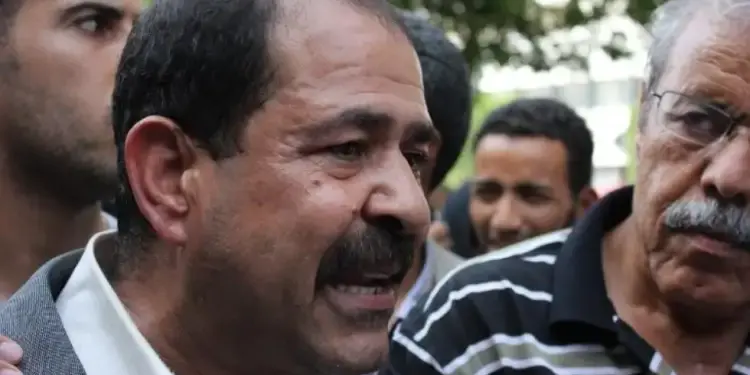The criminal chamber specializing in terrorism affairs with the Tunis court of first instance examined, Friday April 11, 2025, the dismantled file linked to the recruitment and incentive cell to the assassination of the martyr Chokri Belaid.
The investigation concerns several figures of the prohibited movement Ansar al-Charia, notably his leader, the terrorist Seifallah Ben Hassine, alias Abou Iyadh, an imam of the Mosque of the El Khadra district known for his proximity to the latter, as well as the leader of the Slaim Kantari Movement (alias Abou Ayoub), the head of the group’s media branch, AFIF El Amouri, and other accused, including Sami Sayyed and Ahmed Rouissi.
Lawyers of certain defendants asked for a postponement in order to better consult the file and prepare for their defense. A lawyer representing the members of the defense collective of the martyr Chokri Belaid also requested an additional time to expand his requests. The Court has accessed these requests and decided to postpone the audience to June 15.
A cell accused of planning and incentive
According to the file, the members of this cell are accused of having planned and encouraged the assassination of Chokri Belaid, while constituting a media wing for Ansar al-Charia in order to recruit young people, embrigade them in terrorist cells, ensure financial support, disseminate false information, document terrorist operations and restore the image of the entrenched terrorists.
Penalties ranging from acquittal to 120 years in prison
As a reminder, the same criminal chamber had already rendered his judgments in the main file of the assassination of Chokri Belaid, pronouncing the death penalty against four accused: Mohamed Amine Kacem (the driver of the scooter), Ezzeddine Abdellaoui (a security agent revoked), Mohamed Aouadi (chief of the military wing) – the latter two having attended a meeting Iyadh in Hammam-Lif where the assassination had been validated.
The death penalty was also pronounced against Mohamed El Akkari, the security chief of the prohibited movement, while Mohamed Ali Dammak, who praised the car used in crime, and doctor Abderraouf Talbi were sentenced to life imprisonment. Other convictions range from acquittal to a total of 120 years in prison, according to cumulative sentences inflicted individually on certain accused.
Some sentences have been accompanied by immediate execution. Furthermore, justice classified the expenses against five accused on the grounds that they had already been prosecuted for the same facts in other cases. All the accused are subject to an administrative control lasting 3 to 5 years.
The court also condemned Ahmed Melki (alias “Somali”) to 30 years in prison, Mohamed El Omri at 30, Karim El Kelai at 20, Saber El Mechergui at 20, Yasser El Moulhi at 18, Riadh El Ouertani at 20, Houssem Mezlini at 8 years old, and your acquitted Seifeddine El Arfaoui.








